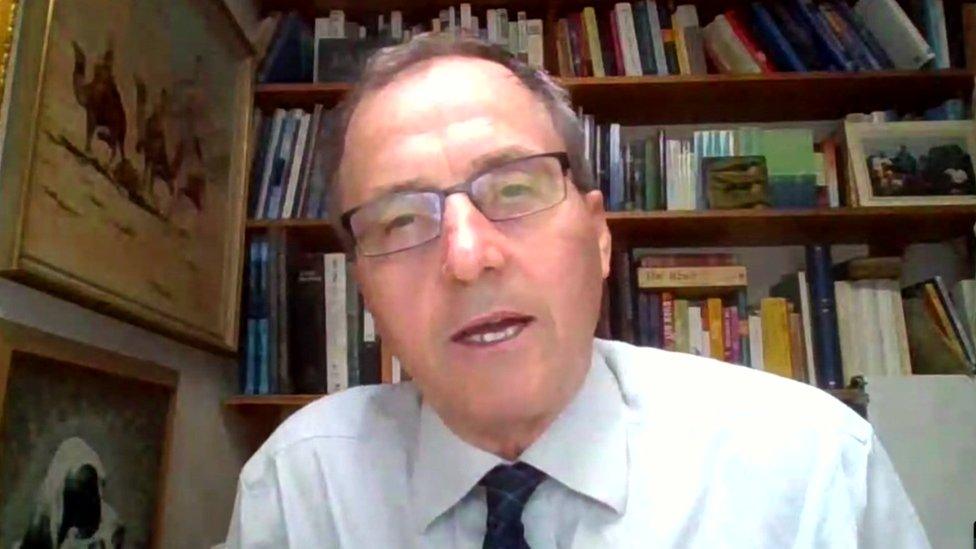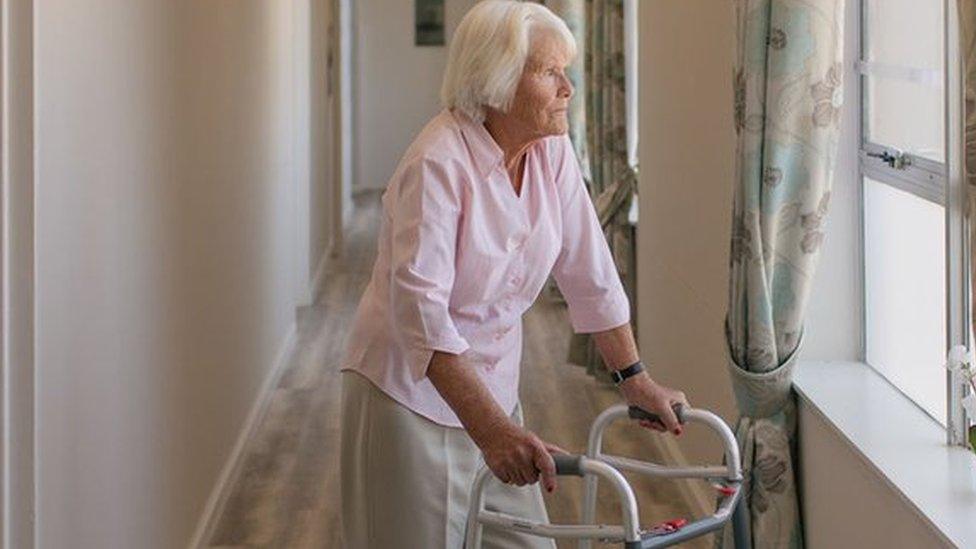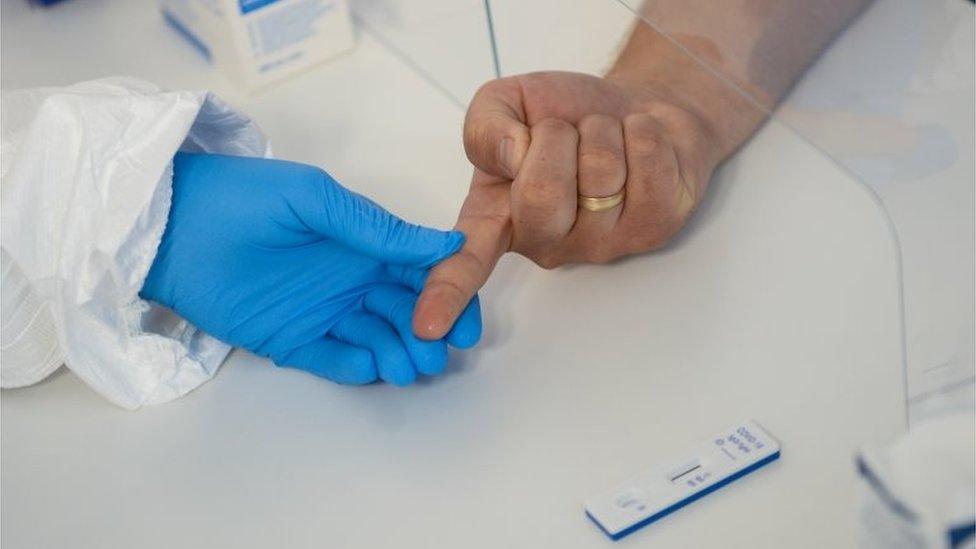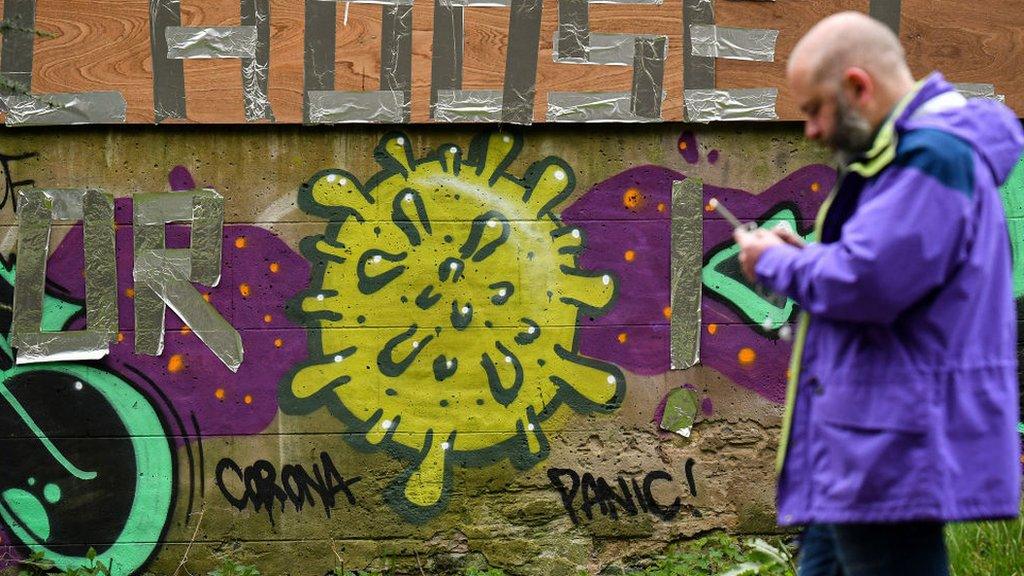Coronavirus: Acting earlier would have saved lives, says Sage member
- Published
- comments

Professor Sir Ian Boyd spoke to the BBC's The Coronavirus Newscast
One of the government's scientific advisers has said he would have liked ministers to have acted "a week or two weeks earlier" in the virus pandemic.
Sir Ian Boyd, who sits on the Sage scientific advisory group, said "it would have made quite a big difference" to the death rate.
Ministers have always insisted they have been guided by the scientific advice during the pandemic.
Government figures show, external 36,042 people with the virus have died in the UK.
Sir Ian is a professor of biology at St Andrews University and is a member of the Scientific Advisory Group for Emergencies (Sage), which advises ministers on Covid-19.
He started attending Sage meetings a month ago.
'Slower off the mark'
He told The Coronavirus Newscast: "Acting very early was really important and I would have loved to have seen us acting a week or two weeks earlier and it would have made quite a big difference to the steepness of the curve of infection and therefore the death rate.
"And I think that's really the number one issue - could we have acted earlier? Were the signs there earlier on?"
Sir Ian suggested that the government based its initial assessment on the transmissibility of the Severe Acute Respiratory Syndrome (Sars) virus, which is less infectious than this coronavirus.
Sars was a previously unknown disease that started to spread around the world in 2003. It went on to infect more than 8,000 people and kill almost 800.
He described the UK and other European countries as "a bit slower off the mark" and less prepared than countries that had experienced Sars in the early 2000s.
He said that ministers would have received "very blunt and very clear" advice from the government's chief scientific adviser, Sir Patrick Vallance. and chief medical officer, Prof Chris Whitty.
"One could point the finger at ministers and politicians for not being willing to listen to scientific advice.
"You could point the finger at scientists for not actually being explicit enough.
"But at the end of the day all these interact with public opinion as well. And I think some politicians would have loved to have reacted earlier but in their political opinion it probably wasn't feasible because people wouldn't have perhaps responded in the way they eventually did."

RISK AT WORK: How exposed is your job?
SCHOOLS: When will children be returning?
EXERCISE: What are the guidelines on getting out?
THE R NUMBER: What it means and why it matters
LOOK-UP TOOL: How many cases in your area?
GLOBAL SPREAD: Tracking the pandemic

Sir Ian also called on ministers to stop saying they are "led" by the science.
"I think the statement 'we are guided by the science' is slightly misleading. I don't think ministers intend it to be misleading. I think they intend it to help to provide trust in what they are saying. And quite rightly so.
"Basically what we in the scientific community do is give the best advice we can based on the evidence that's available to us. We then pass it to government ministers and the policy parts of government who can then take that and do with it what they like within the policy context."
Sir Ian - who was the chief scientific adviser at the Department for Environment, Food and Rural Affairs from 2012-19 - said Sage meetings are currently taking place over Zoom.
He defended the participation of political aides, such as the prime minister's adviser Dominic Cummings, saying: "It brings them back to reality."
More than 50 people sit on Sage. The membership of the group was published, external in early May.
It was followed by the publication of documents from the group setting out their advice.

CORONAVIRUS SPECIAL: “Science has never moved so quickly”
90s NOSTALGIA: 24 tracks to take you into the weekend

- Published1 March 2023

- Published5 May 2020

- Published5 July 2023

- Published1 July 2022

- Published20 May 2020
